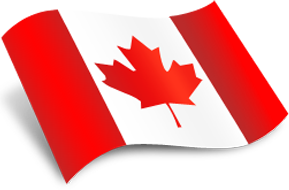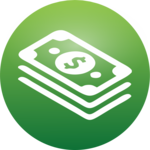
Safe. Fast. Affordable.
Debt Collection
When you don’t pay the money that you owe to a creditor, your debt may be referred to a debt collector. Some companies, particularly large financial institutions, will have their own debt collections department, while others may hire a debt collection agency or even sell your debt to a collection agency.
Having a debt go to collections is bad news. First, it will be recorded on your credit report, severely damaging your chances of borrowing money in the future. Second, while they’re restricted by provincial law, debt collectors will pursue the debt aggressively.
Unscrupulous debt collection agencies are infamous for intimidating and harassing debtors, and even the law-abiding agencies can and will still contact you frequently (how frequently depends on which province you live in).
The best course of action is to pay all of your debts on time, but that isn’t always easy. If your debt is referred to a collections agency, there are some steps that you can take to make the process as painless as possible. Getting no credit payday loans can help as well.
First Contact
When you receive your first phone call from a debt collector, take the opportunity to gather some information. First, find out who you’re talking to. Creditors often outsource their collections to debt collection agencies, so the people phoning you may not be the same people to whom you owe money. Get the name, company and telephone number of the person calling you. If you need to file a complaint later, this information will be very useful. It's okay if you spent all your money on halloween treats, but find a way to pay back asap.
Second, get the details of the debt that they’re trying to collect. Find out the amount, the organization to whom the debt is owed, and the date on which the debt started. Check all of this information against your own records, including your credit report: if the debt isn’t yours, you don’t have to pay it back. If you don’t think that the debt is yours, tell the debt collector and make contact with the creditor in order to discuss the debt and decide how to proceed. Hopefully, you don't have to get too many small loans to get back on track.
If you aren’t sure of the debt collector’s credentials, contact the original creditor to find out if they have referred your debt to collections. You will usually be notified in writing before any attempt to collect your debt is made, so, if you haven’t received a notification, you should definitely get in touch with the creditor. Make sure to record the date and time of the call, as well as what was said.
Know Your Rights
Debt collectors are regulated differently province to province. Regulations typically concern how often a debt collector can contact you, the times and places at which they can contact you, who else they can contact, and the ways in which you can make them stop contacting you. For information on national and provincial law concerning debt collections, the Office of Consumer Affairs has a page of links to provincial information.
Managing Repayments
If the call is genuinely from a collections agency representing a creditor of yours, and if the debt is in fact yours, the best way to manage the situation is to pay off the debt immediately and in full. When repaying debts that have gone to collections, your payments should be made to the organization collecting the debt, not the original creditor. Make sure that you get a receipt for any payment you make, and do not pay in cash.
If you’re in a position in which your debts are going to collections agencies, you may not be in a position to pay your debt immediately and in full. If so, talk to the debt collector and try to arrange an alternative payment plan. This is an area in which credit counselling services would be very useful. They can help you to negotiate with your debt collector to get a repayment plan that works for you. This may also be a good time to start a side hustle. So there is less chance of you drowning in debt again.


